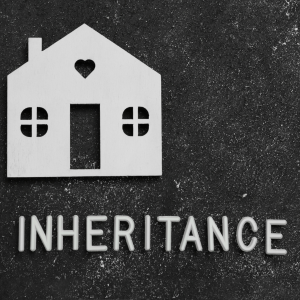
If you want to sell your home for cash in Florida, you need to know the rules for that state. This is especially important if there is more than one heir. Heir property has been passed down from one family to the next without a will or probate. It can be hard to deal with. It is possible to sell that kind of land, but everyone who owns it has to agree to it first. Everyone in the sales department should know what the law says and be able to talk to each other clearly so that everything goes more smoothly. With this guide’s help, you can sell the Florida land you inherited in a way that follows the law and works for everyone.
Understanding Inherited Property Laws in Florida
If someone in Florida owns land and dies, that land can be given to someone else. Each state has its own rules about how to sell land that was left to you, especially if there is more than one owner. It’s not always easy to understand these rules. People who want to sell their house need to know about Florida law and what the family court does. Talking to heirs and getting their permission helps to know the laws that govern purchased property. For example, you should know how the court system works and what the rules are for homestead properties. Another thing you should know how to do is handle sections and inheritance.
The Role of Probate Court in Florida
In Florida, the probate court is a big part of the settlement process. It ensures that the family’s property is divided in a fair and legal way. If someone leaves a will, the court will review it and ensure that the money is given to the right people. The court may have to let the land be sold if there are issues with the title or fights between the owners.
The family court decides who will be in charge of the property. The court watches the people. They have to pay their bills and give away their property according to the will or Florida’s rules for people who don’t have a will. The court ensures everyone follows the rules and is treated the same when people can’t agree on how to sell land.
When someone dies, they leave behind land that they should all agree to sell. If the children can’t agree on splitting the money after the sale, the court could end the marriage. Once you know what the estate court does, it’s easy to settle arguments and sell land in Florida correctly. Contact us to learn your options and get guidance through the process.
Impact of Florida Property Laws on Selling Inherited Estates

This state has many property rules that make it hard to sell family estates. These rules cover things like homestead areas and the rights of more than one heir. There are also many rules about who can sell homesteads and how to divide the money when someone dies. Homes can’t be sold against the will of the people who own them.
What if the house’s owners don’t want it sold? The person in charge of the estate might need to file a split case in court. The court can stop the fights, sell the house, and divide the money that comes in to make things fair. Please don’t do it yourself; it could take longer, cost more, and get you in trouble with the law. Hire someone to help you instead.
Any debts or bills that are still outstanding must be paid off before the property is transferred to someone else. In Florida, you have to follow the rules very carefully. You should hire real estate lawyers and estate managers to protect your kids’ rights and make sure the sale goes smoothly and legally.
Steps to Sell Inherited Property in Florida
It’s not simple to market the land you got in Florida. There are many hard steps you need to take. You need to pick wisely and know the rules. First things first, the estate process often needs to be done. This is what needs to be done to make sure the legal change of ownership goes through, and all the heirs agree. If you want to sell the property someone gave you, you should talk to them about it. Getting everyone to agree can make the sale go more smoothly. The court might have to step in if people can’t agree on something. You need to know these steps for the sale to go easily and legally in Florida.
Navigating the Probate Process
If you wish to sell land you received as a gift in Florida, you must first do this. To begin, a petition must be filed to establish a will or, if none exists, to determine who the heirs are under the rules governing no-will circumstances. The estate court’s mission is to ensure that creditors and children are handled equitably according to the law.
The court appoints a personal representative to care for the person’s belongings after death. At this employment, you’ll be in charge of getting products, paying bills, and distributing them. According to Florida law, most persons must obtain court authorization before selling a house they were granted. Then they can close the purchase and change who owns the property.
In Florida, there are two types of probate: brief and official. To summarize, formal probate is faster for goods that aren’t particularly valuable, but it takes longer and requires more information. In either situation, a lawyer or estate manager can assist the heirs in complying with the law, avoiding delays, and ensuring that the property sale proceeds promptly.
Engaging with Heirs for Selling Inherited Estates

Engaging with heirs is a vital step when selling inherited property in Florida, as their consent is often required. Multiple heirs can complicate decision-making, so open communication about goals, incomes, and benefits is essential. Open discussions build trust, address problems, and reduce the probability of conflict.
If the heirs can’t agree, a partition action may be necessary. This court-supervised process can divide the property or mandate its sale, with the proceeds distributed based on ownership interests. While successful, it can be time-consuming and expensive, underlining the significance of reaching an early agreement.
Mediators and legal consultants can help to calm things down and offer objective counsel. These professionals help heirs navigate emotional and legal concerns, draft agreements, and comply with Florida laws. Using empathy, clarity, and cooperation, heirs can achieve a fair and orderly property settlement.
Challenges of Selling Inherited Property in Florida
People and the law both get in the way of your plans to sell the Florida land you were given. There may be more trouble with the process if there are many children and official steps to follow. There are mental and legal issues that can make it hard for some people to settle their problems and get through the long probate process. If you want to get a good price when you sell a family home with a company that buys homes in Alachua, FL, you should also know how to make it useful. Owners can make a better sales plan if they think about these things.
Emotional and Legal Obstacles Faced by Heirs
When people in Florida sell land given to them, they might not fully understand the law. Many people find it hard to leave their houses because they remember a loved one who lived there. If the land is important to them personally or financially, it could make them mad and cause family fighting.
It is up to the court to handle Florida’s estate laws. They choose administrators, make sure wills are legal, and monitor how assets are given out. It makes you feel worse. People can fight over the terms of a will, the value of property, bills, or debt claims. Most of the time, people need a lawyer to help them figure these things out.
What if the heirs can’t agree on anything? The courts can order a sale and divide the money from it. This is known as a split case. This way, it costs a lot and takes a long time. When families work with counselors and lawyers, they can find a better mix between what they need and what the law says. It might help things get better, and Yellow Card Properties can help guide you through the process.
Probate Court Requirements and Documentation
When working with inherited property in Florida, it is very important to know what the probate court needs and what paperwork they need. The probate process is an important part of legally transferring assets, and it can go a lot quicker if you know what papers you need. As a result, we will discuss the important papers needed for family court, how Florida law affects the process, and how these papers affect property deals and estate administration. This information is very important for people who want to sell land they inherited while making sure everyone’s interests are protected.
Essential Documents Needed for Probate Court

What do you need to do to sell land in Florida that you got as an inheritance? You need to file certain papers with the family court. The person’s will is the most important thing. It has to be legal in Florida and be able to be shown in court. If there is no will, the rules say who the owners are. Most of the time, birth or marriage papers are needed to show that these rules are followed.
Along with valuing the land, lawyers must also make a full list of everything on the farm. They help the court figure out how much the property is worth, ensure it is split up fairly, and ensure all bills and claims are paid off before the property is given away. Lawyers also need to call family and creditors and let them know what’s going on.
If the heirs don’t agree, you might need more proof, like agreement forms or court papers for a division case. Plus, homestead assets are extra safe because of Florida law. They usually need papers or statements to prove their worth. Agents can keep the sale on track and avoid fights by getting these important papers together.
Inheriting a property and unsure what it might cost to sell it as-is? Traditional buyers often expect repairs and updates that can drain thousands from your pocket. With Yellow Card Properties, you can skip the hassle. Get a fair cash offer with no repairs, no agent fees, and no closing costs. We make selling inherited property simple and stress-free. Call us at (904) 539-4420 for a no-obligation offer and find out how much you can save by selling your heir property as-is.
Key Highlights
- Selling inherited property in Florida requires unanimous heir consent and understanding state-specific laws.
- The probate court oversees the distribution of assets, necessary for legal and equitable property sales.
- Florida law protects homestead properties, influencing inheritance and sale conditions among heirs.
- Navigating emotional and legal challenges is crucial when multiple heirs are involved in property decisions.
- Maximizing property value involves strategic repairs, understanding market trends, and legal compliance.
FAQs:
What is heir property, and why is it challenging to sell in Florida?
Heir property is passed down through generations without a will or probate. Selling it can be challenging due to the need for consent from all heirs and the complexities of state-specific inheritance laws.
What role does the probate court play in selling inherited property in Florida?
The probate court oversees the distribution of inherited property to ensure the process is legal and equitable. It involves proving the validity of a will and may be required for transferring property titles, especially with disputes or multiple heirs.
How does Florida law affect the sale of homestead properties?
Florida law protects homestead properties from forced sale and applies complex rules regarding their inheritance and sale. These laws influence the eligibility to sell and the distribution of proceeds among heirs.
What is a partition action, and when might it be necessary?
A partition action is a legal process where the court orders the sale or division of a property when heirs cannot agree on selling it. This process ensures equitable division of proceeds when disagreements persist.
Why is engaging with real estate professionals important in selling inherited property in Florida?
Real estate professionals, like attorneys and estate planners, provide guidance on legal compliance, help navigate probate processes, and ensure all heirs’ interests are considered, leading to a smoother sale transaction.
Helpful Florida Blogs
- Tips For Selling Your Florida Home During A Move
- Selling Your Old House In Florida’s Real Estate Market
- Sell Your Florida Home With An Existing Mortgage
- Selling a House That Needs Repairs in Florida
- Financial Impact Of Selling Your Florida Home As-is
- Sell Your Florida Home While Owing Back Payments
- Smart Strategies To Minimize Closing Costs In Florida
- Understanding Florida Inheritance Laws For Real Estate And Property Owners
- Mastering Home Sale Contingencies In Florida
- Can Heir Property Be Sold in Florida?
- How Long After an Appraisal Can You Close in Florida
- Can a Buyer Back Out After Inspection in Florida
- Selling a House in Bad Condition in Florida

